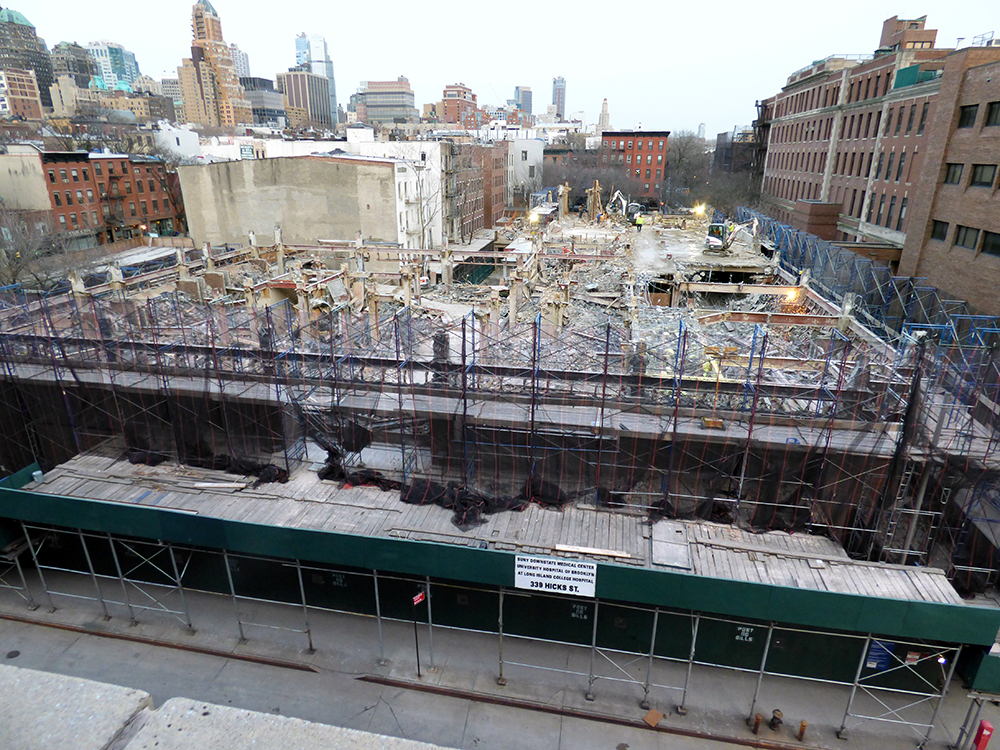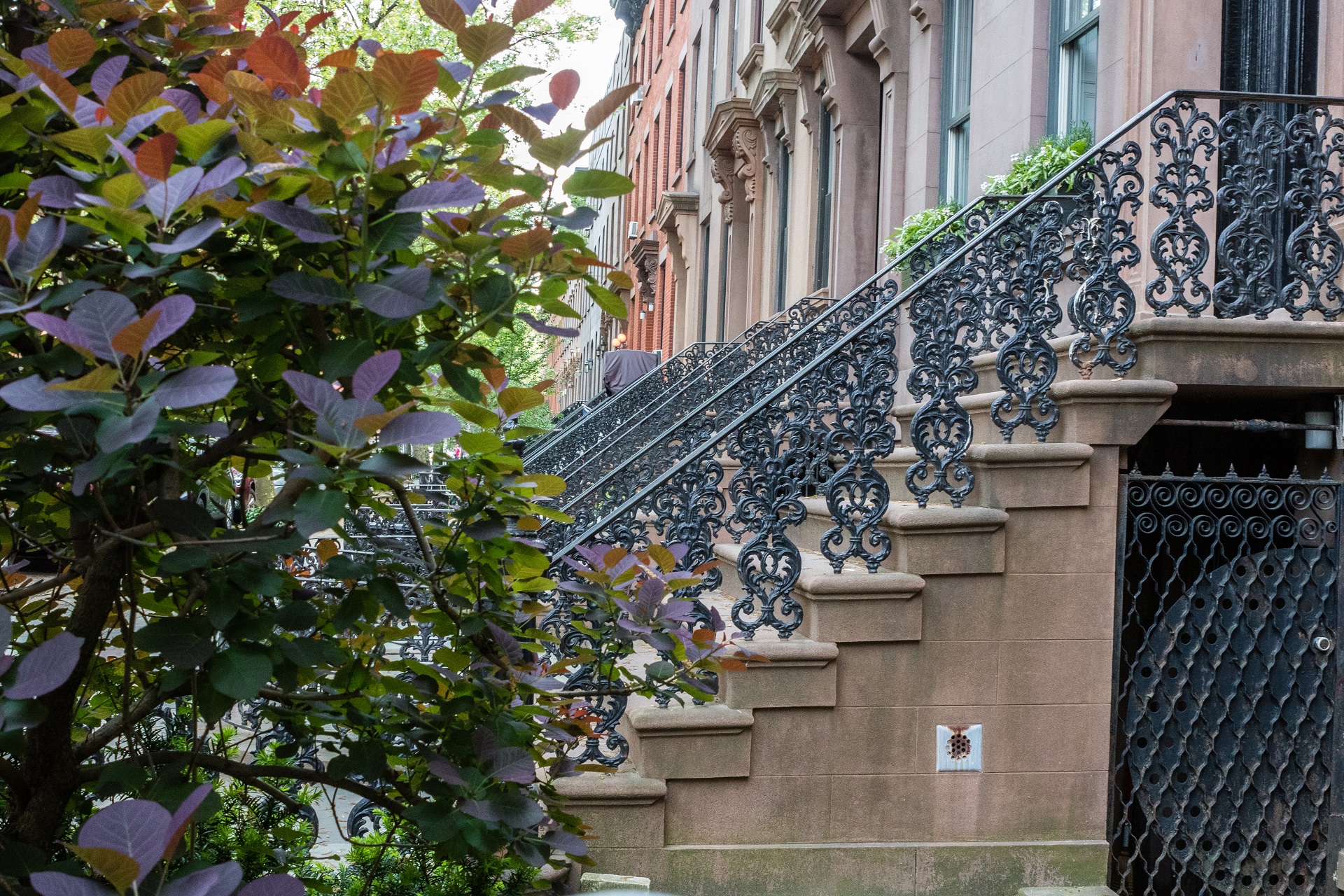5 a.m. demolition at former Long Island College Hospital (LICH) riles Brooklyn neighbors
Squadron: Fortis ‘thumbs nose’ at Cobble Hill

It’s bad enough, neighbors say, that enormous, out-of-context development is changing the character of their low-rise neighborhood. Now, Cobble Hill residents complain they are being shaken awake early in the morning by noisy demolition at the former Long Island College Hospital (LICH).
After Hours Variances (AHV) have been issued to developer Fortis Property Group allowing late-evening and early weekend construction at 339 Hicks St., according to the city’s Department of Buildings (DOB).
Neighbors have complained to the Cobble Hill Association that Fortis contractors have even disregarded the variances’ rules and started work as early as 5 a.m.
